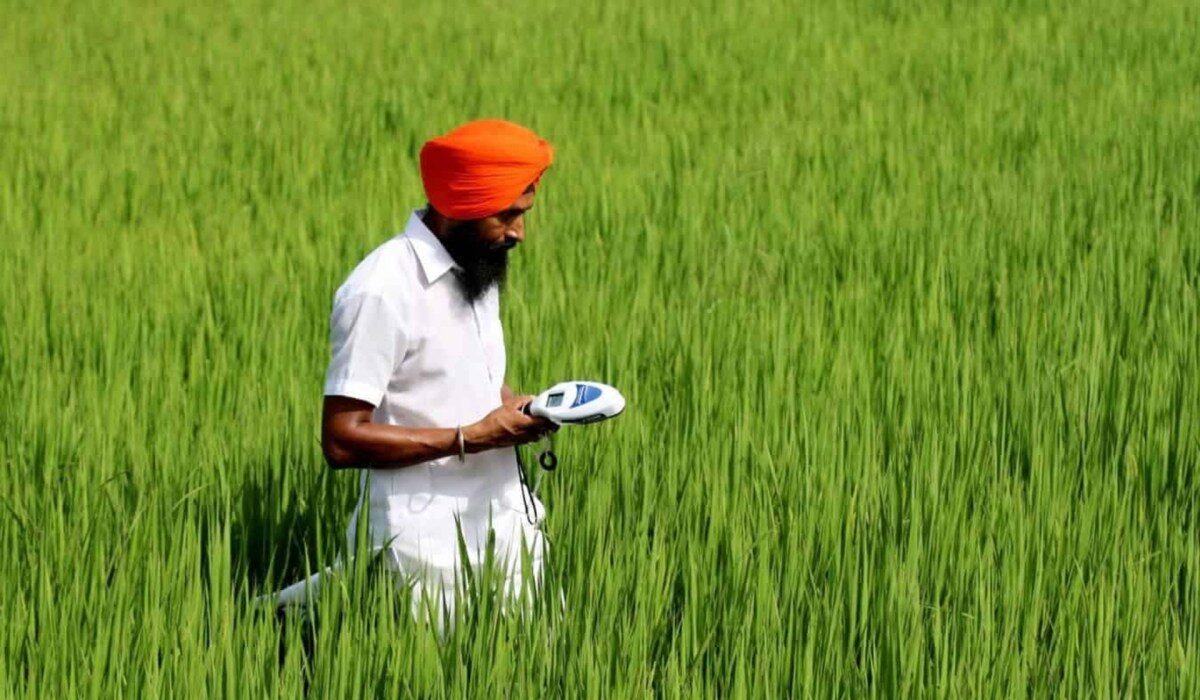Mirova, the French climate-focused investment firm backed by Kering and other corporate heavyweights, has invested $30.5 million (€26.4 million) in Indian climate tech startup Varaha. This investment will help to expand the startup’s regenerative farming program, supporting hundreds of thousands of smallholder farmers in northern India.
The deal marks Mirova’s first carbon investment in India, but its structure is unusual. Rather than taking equity, the Paris-based firm is investing cash, and will get a share of the carbon credits generated in return over time.
This arrangement is part of Mirova’s carbon investment strategy, which channels corporate capital into verified emissions-reduction projects. The firm is an affiliate of Natixis Investment Managers and counts among its backers Gucci parent Kering, Orange, L’Occitane Group, Capgemini, Unibail-Rodamco-Westfield, and MANE. All of these are companies seeking to offset supply-chain emissions through credible carbon initiatives.
Regenerative farming — the practice of restoring soil health and enhancing biodiversity through methods such as crop rotation and reduced tillage — is gaining traction as a practical approach to making agriculture more resilient to climate change. In India, where millions of small farmers face declining soil fertility and erratic rainfall, the approach is as much about survival as sustainability.
Founded in 2022, Varaha designs and operates carbon projects across regenerative agriculture, agroforestry, and biochar. It works through a network of 48 local partners to carry out field operations and its software monitors these projects in real-time, reporting, and verifying both climate and social outcomes.
Mirova is investing in Varaha’s Kheti project, which works with farmers in the Indian states of Haryana and Punjab to adopt low-emission practices and generate verified carbon credits that can provide an additional source of income. So far, the project covers over 200,000 hectares and is expected to reach around 337,000 farmers across 675,000 hectares as it scales.
Varaha’s approach is rooted in practices tailored to India’s cropping systems, especially in the country’s rice-growing belt. The startup focuses on direct seeding of rice and incorporating crop residue into the soil — a crucial alternative to the widespread practice of burning stubble after harvest, Madhur Jain, co-founder and CEO of Varaha, said in an interview.
Techcrunch event
San Francisco
|
October 13-15, 2026
“Instead of burning the residue, you use agricultural machinery to cut it on the farm and mix it back into the soil,” he told TechCrunch.
The startup also promotes reduced tillage, cutting back from multiple ploughing rounds to just one or two, which helps conserve soil carbon and improve the soil’s capacity to store more over time.
The startup plans to use Mirova’s investment to help it procuring the machinery needed to implement regenerative practices.
“If you have to do direct seeding of rice rather than transplanting, which requires a lot of water, you need thousands of direct seeders,” said Jain. “Because this isn’t yet a conventional practice, the number of seeders available in the market is much lower than what’s required. So you need to go to the manufacturers and get them. Similarly, for crop residue incorporation, you need machines such as happy seeders and super seeders.”
The credits generated under the program will be verified using Verra’s VM0042 methodology, with a revenue-sharing model designed to channel proceeds directly to participating farmers. The project is also seeking Climate, Community & Biodiversity (CCB) certification from Verra, a non-profit, which recognizes land management projects that deliver co-benefits for the environment, local communities, and biodiversity.
While Verra is one of the key organizations verifying carbon credits globally, it has faced criticism following investigations that suggested some projects it approved may have overstated their carbon savings.
Varaha still prefers to use Verra for its regenerative farming project because the non-profit is the only one offering the “most advanced scientific methodology in soil carbon.” Jain said. However, he added that Varaha is not tied to any single registry and works with other leading standards including Puro and Isometric.
“On the soil organic carbon side, none of Verra’s credits have been questioned so far by anyone,” he said.
In addition to cutting emissions, Varaha’s tech is intended to improve soil health, reduce water use, limit chemical inputs, raise crop yields, lower farming costs, and contribute to cleaner air. The startup also plans to develop dedicated programs for women farmers, aiming to strengthen gender inclusion within rural communities.
Varaha’s worldwide reputation was helped by an agreement it signed earlier this year with Google, in what it described as the world’s largest biochar carbon removal deal. The tech giant will purchase 100,000 tons of carbon dioxide removal credits from the startup by 2030.
Varaha’s investors include RTP Global, Omnivore, Orios Venture Partners, IMC Pan Asia Alliance Group’s Octave Wellbeing Economy Fund, and Japan’s Norinchukin Bank. The startup has raised $12.7 million in venture funding to date, including $8.7 million from a Series A round last year.
